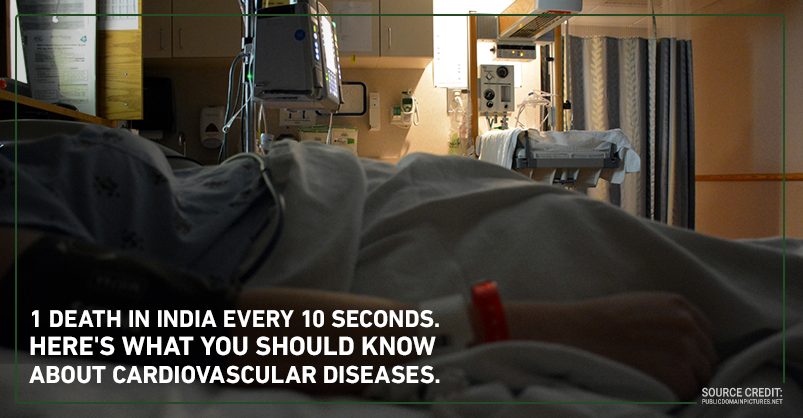How important is it to know how to respond to a heart attack

A person sitting next to you in a room has a heart attack, and you are the only one around. This is a situation that demands choices that are probably going to be one of the most important ones in your life. Well, if anything, it is definitely the most crucial one for the victim.
The choices that you make now will determine whether the other person lives or dies. So, what is one supposed to do? How does one react to a situation like this where it is matter of life and death for someone? Do we know enough about it?
World Heart Day is an annual event which is celebrated on the 29th of September every year with the intention to educate people around the globe about the world’s leading causes of death, claiming 17.3 million lives each year.
"India is the diabetic capital of the world. Let's not make it the heart disease capital. As Indians, we are genetically more prone to cardiovascular diseases," Dr. Rehan Sayeed, Chairman and Founder of Motherhood and the Heart Center in Bangalore told Jaago Re in an interview.
"When the rest of the world gets it at 60 or 70 years of age, we are seeing this at 30 or 40 years of age. Fundamentally, we have to understand that we have a genetic issue. So, we need to stay healthy. Exercise 30 minutes a day for 3 days a week and stay healthy."
To break it down into further numbers, around 9,000 Indian lives are claimed alone in a day, with patients succumbing to death because of cardiovascular disease (CVDs.) That's about a death almost every 10 seconds. Did you know that 31% of the global deaths are from CVDs with 82% affected coming from low and middle-income countries? And, this number is only expected to grow over the coming years, with the number going up to 23 million deaths annually by 2030.
Taking all this into factor, you could understand how important it is for people to really understand the disease and remain vigilant in grave situations instead of letting fear or confusion cloud their judgment. Or, better yet, be prepared for it.
Be prepared: Knowing where the nearest hospitals and keeping a list of emergency numbers come handy.
Be quick: "Time is muscle," is a saying that doctors have. Any delay in getting the patient treatment could mean lesser chances of survival.
Call for professionals: The first thing you should be doing is getting professionals with their equipment and medication to the victim. Driving them to the hospital is not advisable as the condition of the victim could change rapidly - something the professionals will be more than prepared for.
Waiting: While you wait for professionals, you can make sure that the victim is in a position that is comfortable for him. You could make him sit on the floor or lean against a wall. This, in fact, eases the strain on the heart.
"Educating the community is key" is what Dr. Srikanth KV from the Narayana Institute of Cardiac Sciences had to say. "Which drug should one take is perhaps the most asked question when I'm giving lectures. People need to realise that it is more cost effective to adopt a healthy lifestyle than treating the patient. Places at work could have more regular check-ups for their employees. Prevention is better than cure, and the same applies here. "
Speaking of leading a healthy lifestyle, Shwetambari Shetty, a Zumba fitness trainer and Nike Trainer, constantly pushes people around her to move and get fit.
"As a fitness expert, I always get one question, what exercise and how much exercise must I do for weight loss? I say weight loss is a by product of exercise, exercise must be incorporated to avoid or minimize the risk of Cardio Vascular Diseases (CVD)."
"Heart disease is the number one killer in India. Yes, genetics play a role, but now the lifestyle is making it worse, drinking excessively, smoking, stress, bad food and to top it, sedentary lifestyle is increasing CVD cases. The only answer is exercise and eating, not God or Doctors. No matter how busy you are, 30 mins exercise a day, at least 3 to 5 days a week can make a positive difference. Make exercise a necessity just like eating, bathing, sleeping and NOT a luxury."
We as a society must aim at living in an environment that shouldn't increase our risk of cardiovascular diseases. Outreach programs to spread awareness of the disease and appropriate treatment play an important role in reducing the risks. We need to all contribute in supporting such initiatives to ensure we live healthier and contribute to a better world.
What are your views on the article? Write to us on our Facebook and Twitter pages, or email at jaagorein@gmail.com
*The facts and figures mentioned in this article are via World Health Organisation.
Share this story on





